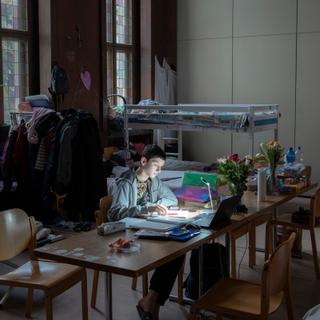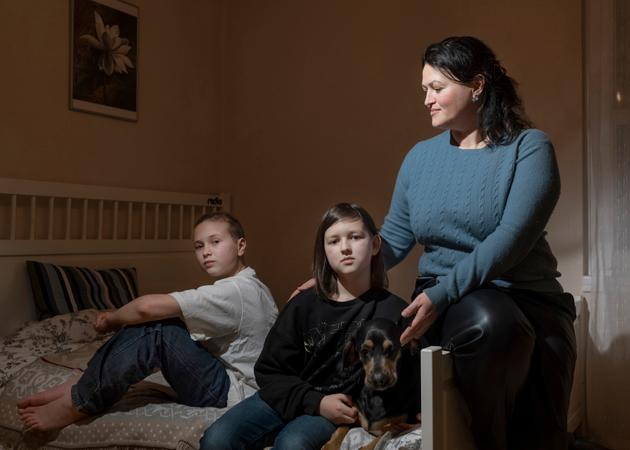


Germany, the preferred refuge for Ukrainian exiles
Your storiesThe country is home to more than one million Ukrainian refugees, many hoping to settle there permanently, despite the difficulties of integrating into the job market.
Four years ago, during the Covid-19 pandemic, Iryna Kravchenko, an executive in a major Kyiv bank, was talking about vacations with a colleague. He advised her to go to Berlin. "It's a great city, I'm sure you'd like it," he told her. "I don't fancy it at all. When we can travel again, I'll go to the sea and the sun, but certainly not to Germany," she had replied.
But her colleague was right. Today, Kravchenko loves Berlin so much that she can hardly imagine living anywhere else. Yet she arrived in the worst possible circumstances. It was March 8, 2022. 12 days earlier, Russian troops had invaded Ukraine and, like tens of thousands of Kyiv residents, Kravchenko left in a hurry, her only concern being to protect her three sons and their little dog from the bombardments. After a stopover in a village in the west of the country, they crossed into Poland and made their way to Warsaw. There, an acquaintance offered to put them up, but for no more than four days.
Iryna then had the idea of posting a message on a Facebook group helping Ukrainian refugees. "16 minutes later," she recounted, "a lady in Berlin said that she was ready to take in a family of four with a dog. I still can't believe that our arrival in this city was decided in 16 minutes."

There's no such thing, of course, as an exemplary Ukrainian war refugee, but if there had to be an exercise to find one, Kravchenko could serve as a model. Firstly, because she's a woman, like 80% of the 4.3 million or so people who fled Ukraine after February 24, 2022, and enjoyed "temporary protection" status in the European Union (EU) by December 31, 2023. Also because she's living in Germany, the EU country with the highest number of such refugees (1.1 million), ahead of Poland (956,000), the Czech Republic (373,000), Spain (194,000) and Italy (161,000), and far ahead of France (65,000), in 15th place out of 27. Finally, because she is 40 years old – the average age of Ukrainian war refugees registered in Germany – and she came with her children, like 58% of Ukrainian women who have settled there since 2022.
'Incredible outpouring of generosity'
If Kravchenko's story echoes many others, this is also because of what it says about the reception and integration of foreigners in Germany. For her, it's obvious: "The positives far outweigh the negatives," she maintained, looking back over the last two years. The "incredible surge of generosity" in the early days, when "lots of ordinary people came to donate clothes or toys for Ukrainians, sometimes late at night after work"; the apartment financed by the employment agency, a functional 86-square-meter flat in the residential district of Charlottenburg, which she was lucky enough to get "in just two months"; the satisfaction of having found a school "15 minutes from home," and above all the "pride" of seeing her sons, aged 10, 12 and 18, "learn German so quickly."
You have 58% of this article left to read. The rest is for subscribers only.
